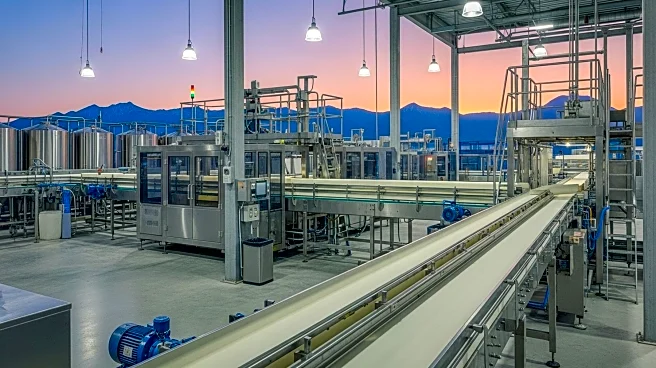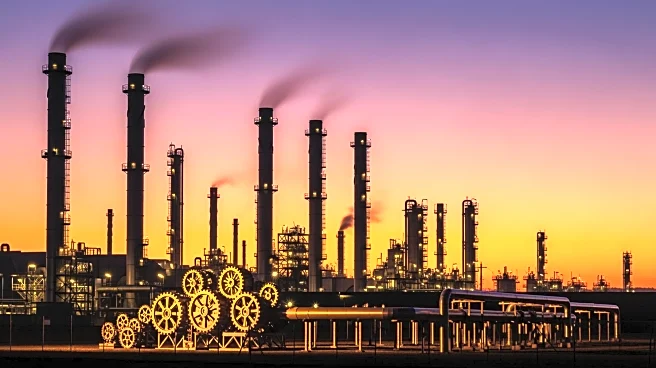What is the story about?
What's Happening?
Algeria has announced a $3.5 billion project to construct the world's largest integrated dairy and powdered milk production facility. Despite the scale of this development, Norm Dinis of Empire Dairy in Wiggins suggests that dairy producers in the western United States are unlikely to be affected by changes in exports once the facility becomes operational. This is largely due to the current market glut of milk powder, which has seen decreased popularity compared to whole milk and protein products. Colorado, for instance, produces about 6 million pounds of milk, with a significant portion going to cheese production, while excess milk is processed into powder at a discount.
Why It's Important?
The establishment of such a large dairy facility in Algeria highlights the importance of agriculture in ensuring food security, especially in oil-rich countries. For the U.S. dairy industry, the focus remains on meeting consumer demand for protein-rich products, which are increasingly popular. This trend reflects a broader shift towards high-protein diets, impacting dairy production and consumption patterns. While the Algerian facility may not directly affect U.S. producers, it underscores the global competition and evolving consumer preferences that American dairy producers must navigate.
What's Next?
As Algeria moves forward with its dairy facility, U.S. producers will continue to focus on innovation and meeting domestic consumer demands for protein-enhanced products. The trend towards high-protein diets is expected to persist, potentially influencing production strategies and marketing efforts within the U.S. dairy industry. Additionally, the development of agriculture in resource-rich countries like Algeria may inspire similar initiatives elsewhere, potentially altering global agricultural dynamics.
















